Shark Attacks and Nuclear Meltdowns
How our fear of the misunderstood is putting us in danger.
Written by David Watson
January 31, 2020
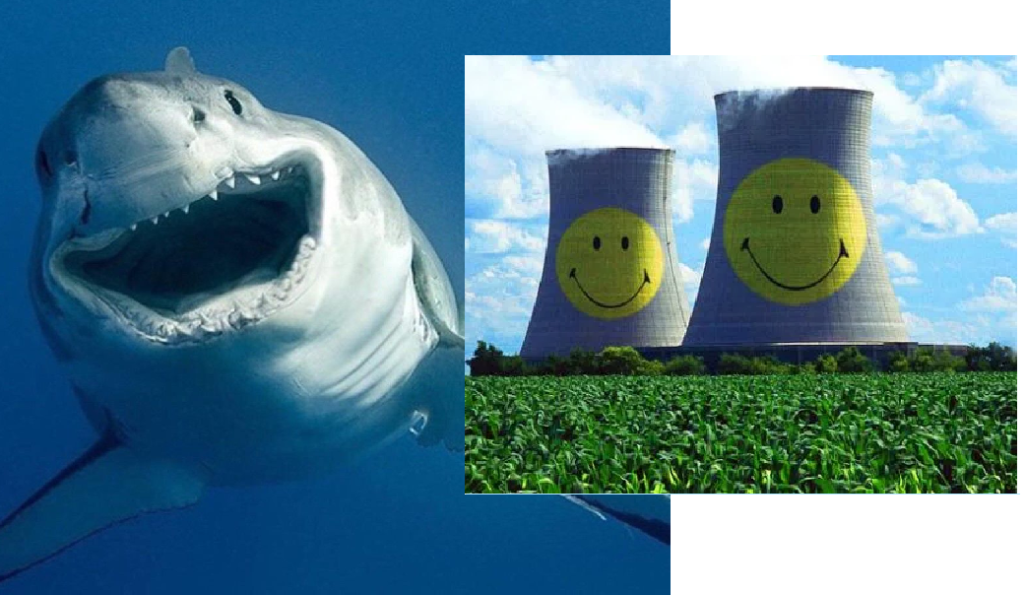
There are few things in life with a worse public image than nuclear power. It’s a close call, but I think I might have found one.
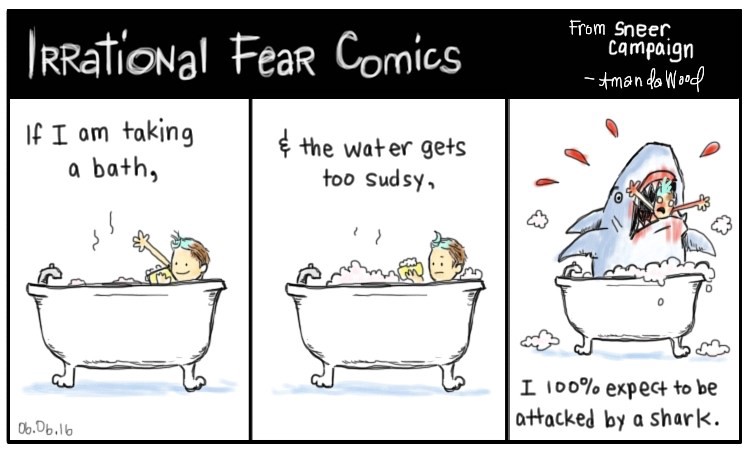
Some say it was the success of Steven Spielberg’s classic movie “Jaws” that created today’s widespread fear of sharks. Others, that a handful of serial attacks in the early 20th century are to blame. Wherever it came from, around the world millions of people avoid surfing or swimming in the sea because they fear they’ll be attacked by a shark.
The chance of even the most regular swimmer or surfer being attacked by a shark is extremely low. There are millions of people around the world using the sea for work and leisure, but in 2022, there were only 57 unprovoked attacks by sharks on humans, and five fatalities.
Despite this, many governments go to extreme lengths to capture and kill sharks that come close to bathing areas.
To highlight the relative harmlessness of sharks, the Florida Museum publishes the odds of being killed by a shark alongside other causes. Their study shows that heart disease, driving and even lightning is more likely to kill you than a shark.
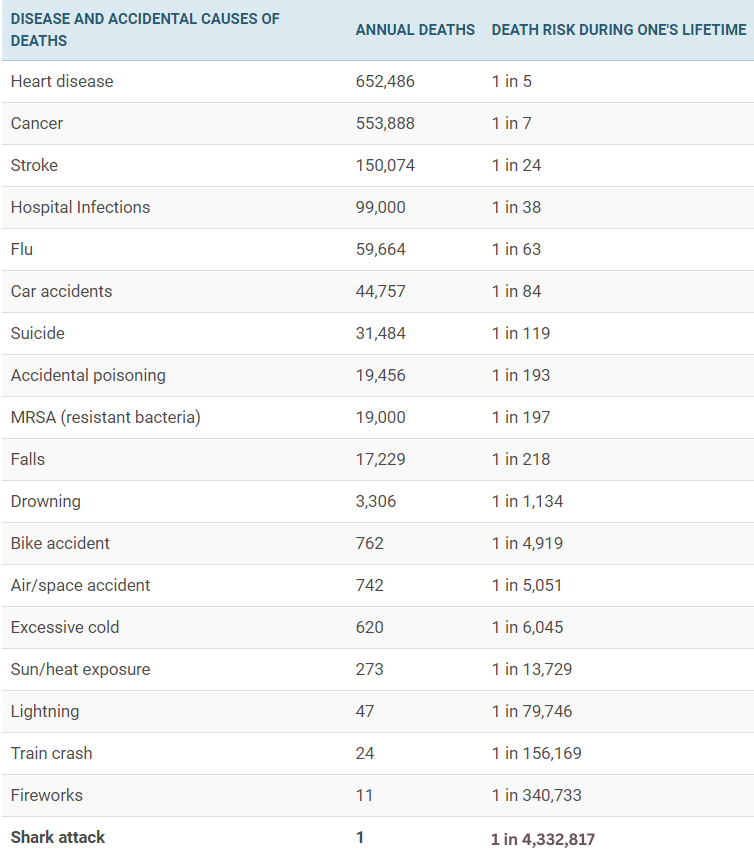
The Florida Museum compares the risk of shark attack to every day things.
It’s actually the sharks that should be afraid of us. Humans kill hundreds of millions of them every, single year. Many are killed for the Asian delicacy known as shark fin soup. Often the fin is cut from the live shark before tossing it back into the ocean to slowly die. Others are killed by accident when we fish for other species (what’s known as bycatch).
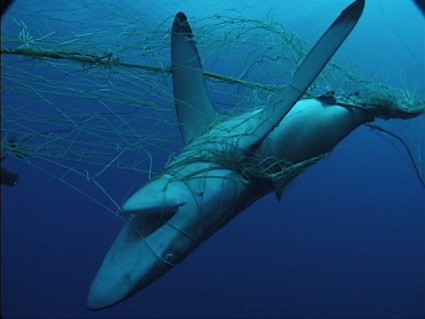
Many sharks are accidentally caught by fishing nets and lines (Image from marine campaigners, Speak for the Blue).
Sharks are top, or apex, predators. They regulate marine ecosystems and keep things in balance. Humankind’s simultaneous fear of and appetite to eat sharks has led to their steep decline, with many species now threatened or endangered.
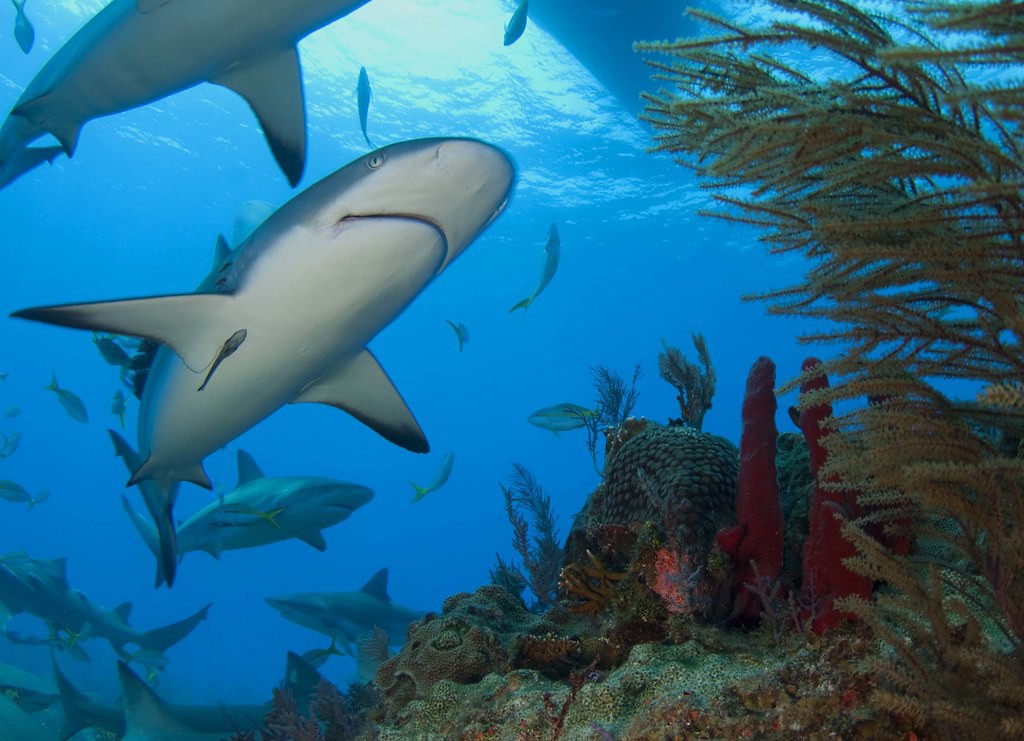
“carribean reef shark 7” by AlKok is licensed under CC BY-NC-SA 2.0
So sharks are good for the planet, yet almost universally feared.
A bit like nuclear power, then.

Thanks, Matt Groening and The Simpsons team for your hard work on that front.
I’ve definitely worried about sharks before when I’ve been in the sea. How funny, when I should have been focusing on avoiding drowning, it being over 3,300 times more likely to kill me than a shark.
That got me thinking: is there some parallel here to the widespread fear of nuclear?
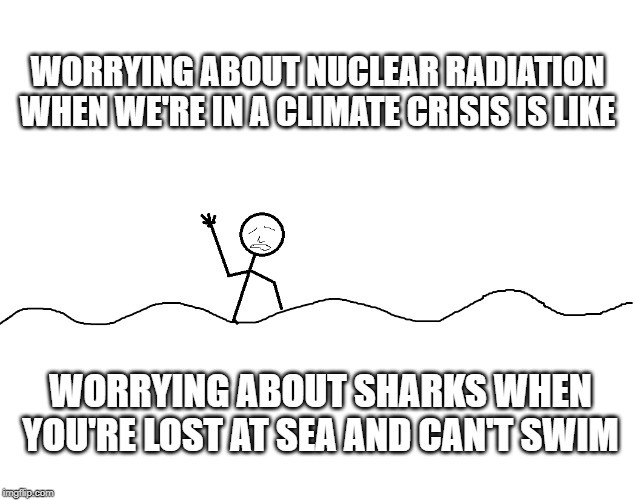
Share my meme by heading to imgflip.
As we fear the shark that lurks unseen below, we fear the invisible radiation that might silently poison us.
We think nuclear is dangerous and polluting because almost everything we ever hear about it is negative. TV and movies portray nuclear as apocalyptic and blur the line between nuclear bombs and nuclear power.
Although nuclear is safe, the public is being rational when they fear nuclear power, because that is the logical conclusion given the evidence they have from TV and movies. You could say the same about sharks.
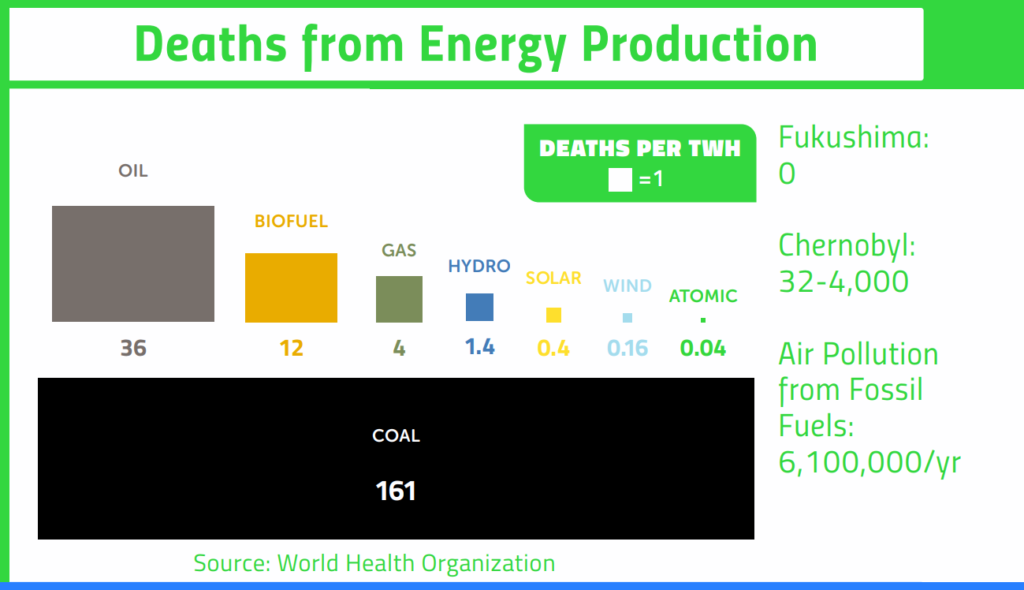
Even governments that support nuclear power put out confusing messages. We are simultaneously told that nuclear waste is safe, but that it must be buried a kilometre underground, where it will remain secure for millennia. If it’s so safe, you might ask why we need to do that.
Most are surprised to hear that the main health impacts from both Fukushima and Chernobyl were fear of radiation, not radiation itself. Likewise, our fear of sharks, which is contributing to their decline and to a degraded marine ecology, is more damaging than any risk they pose to us.
Our fear of nuclear slows the expansion of new nuclear power. This means more fossil fuels, more air pollution (which kills 7 million people a year), more global warming. This fear is dangerous stuff.
It’s hard to be rational about sharks, just as it is about nuclear. But in a warming world with increasingly disrupted ecosystems, we owe it the sharks, and we owe it to our atmosphere, to be wary of the primitive, lizard brain that pumps us full of adrenaline when our fears are triggered.
Instead, we should listen to the scientists:
Sharks and nuclear are cool, man.



